Gladiator II is out, and the epic follow-up to Ridley Scott’s masterpiece brings the Roman Empire even closer to its inevitable demise. Here, we speak to three of Gladiator II‘s leads – Paul Mescal, Fred Hechinger, and Connie Nielsen – about how they brought their characters to life in the action-packed sequel.
There’s a point in time rarely spoken about in the art of making movies. It’s brief and ephemeral, felt only by the people involved. It’s difficult to share, as, by necessity, it’s deeply personal: the moment an actor discovers they’ve landed the part, and for a brief moment in time, is one of the only people in the world who knows.
Irish-born actor, Paul Mescal, famous for his breakout role in 2020’s Normal People, had one such moment when he discovered he’d be taking up the role of Lucius, the stray son of Lucilla (played across both films by Connie Nielsen), who would act as the lead for the blockbuster Gladiator II.
Mescal received the call while working in London on a theatre production of A Streetcar Named Desire. Once the news hit him, he explains, he essentially dissociated and remembered nothing from the following few minutes.
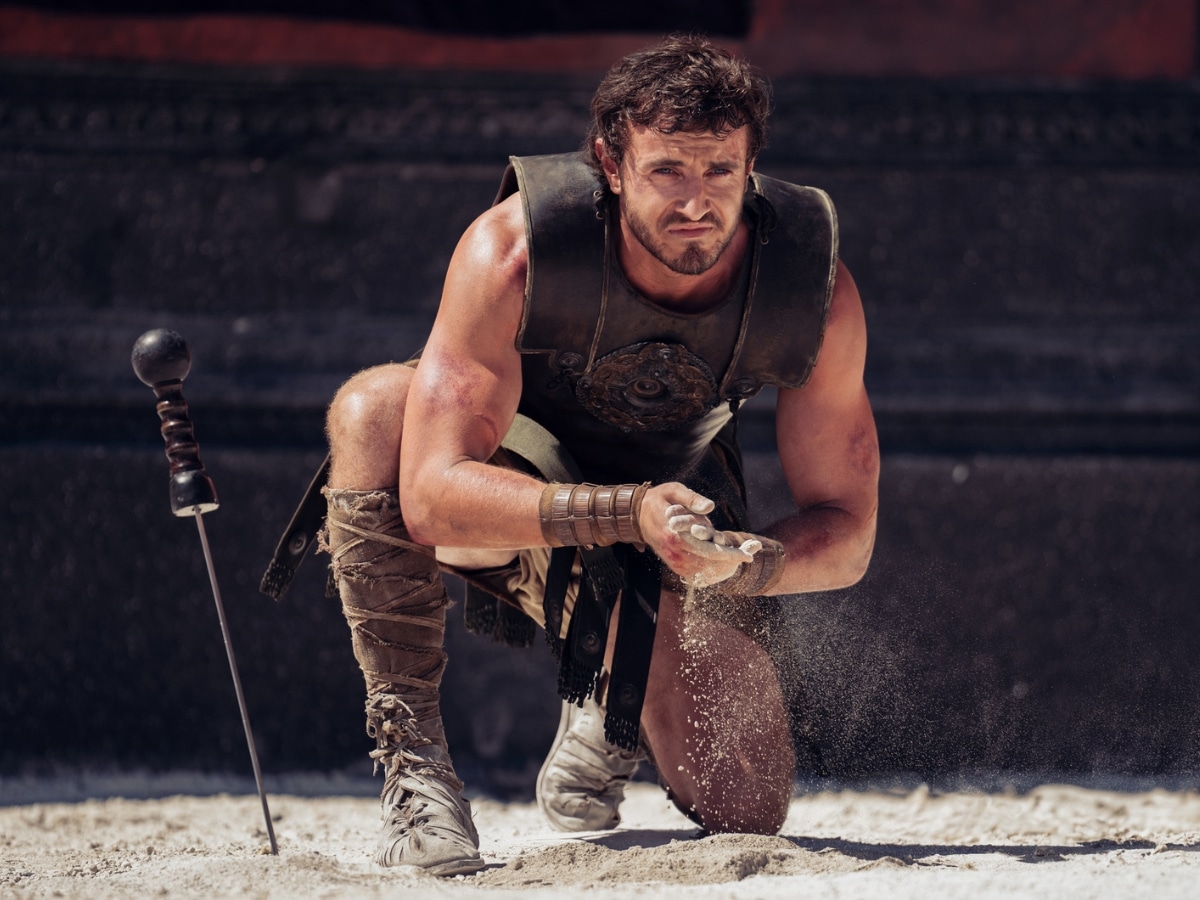
“I just remember walking into the theatre,” Mescal recalls. “There’s a good solid where I just don’t remember. I was obviously really excited, but I just can’t even remember what the conversation was.”
Similarly, Fred Hechinger, who plays one of Rome’s dual emperors, Caracalla, opposite his on-screen brother Geta, played by Stranger Things‘ Joesph Quinn, had a moment of solitary joy.
“I pulled over the call came through,” Hechinger tells me. “And, after I got off the phone, I just sat in the car for a while. [There’s this] feeling where you have this news, and you’re excited to share it with people, but holding onto it .”
There is a moment where reality sinks in, though, and you realise you have to get to work. Actors tend to approach this step in their own way: some dive deep into intellectual preparation, learning everything they can about the role, the story, and the world they’ll be inhabiting. Others prefer to bring their own stamp to the role, regardless of what’s come before.
To Hechinger, it’s a deeply personal experience.
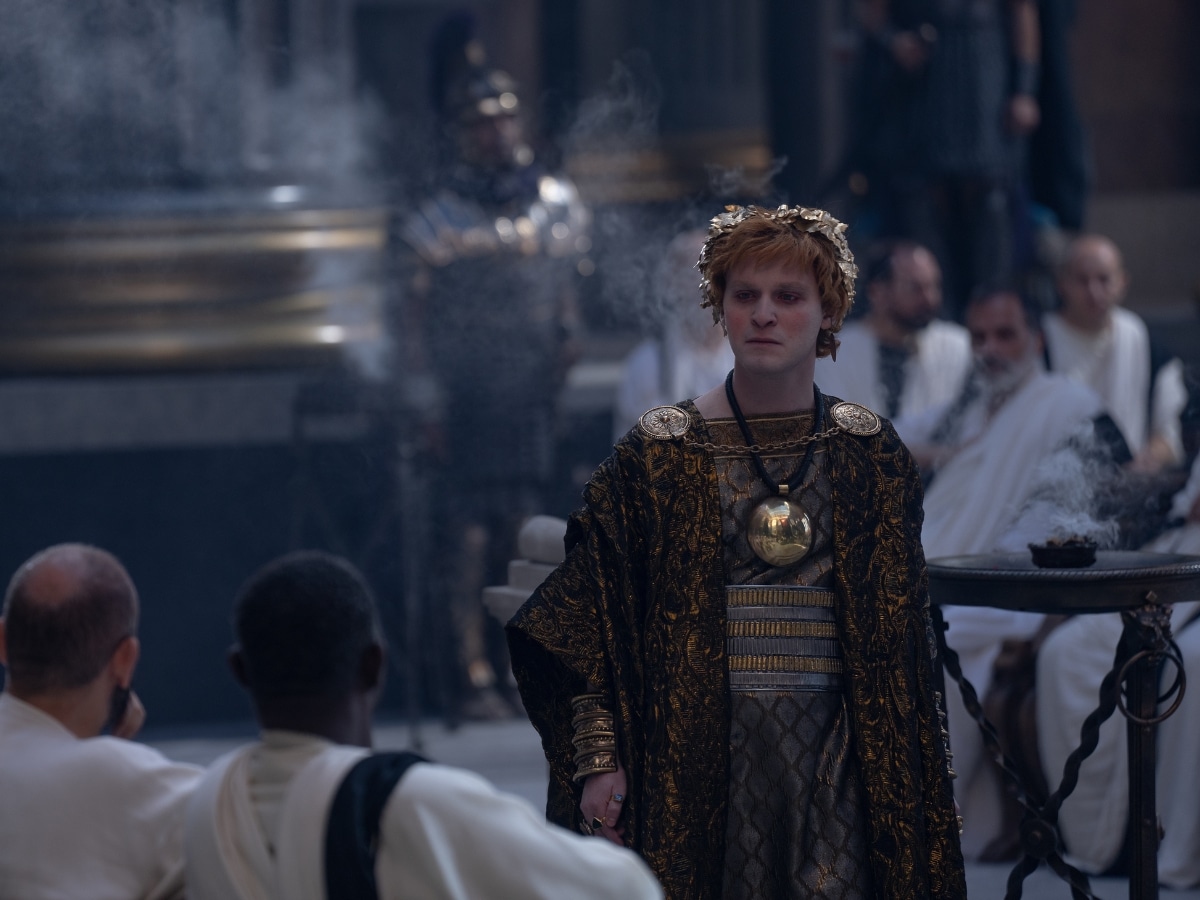
“You have to get ready and figure out how to embody the character and do them justice every time, because what worked for the last one will never work again – there’s always something very unique and eccentric about that, and you’re always trying to mysteriously figure out what’s special about this ,” Hechinger says.
“What’s lovely about this job is that preparation is both incredibly practical, but then also totally mysterious and different every time.”
Mescal, on the other hand, brings a steadier hand to his preparation, preferring to maintain a keen eye on what needs to be accomplished.
“It’s the same you would do for any role. The job doesn’t change just because it’s a big film. It’s kind of boring, but you go to work, you look at the script, and you do the kind of physical tasks that are required to play the role,” he says.
The pair’s approaches speak to their individual characters within the film. Mescal’s Lucius is a physically imposing hero, who mainly expresses himself through his actions, his survival, and a steely gaze. He gains the respect of his fellow gladiators by sheer might, and an unbreakable will.
Heschinger’s Caracalla, on the other hand, is a man trapped in an unwell body and mind. He jumps from amusement to rage to entertainment at the drop of a blade, and calls for execution at every opportunity. Despite this, his character feels naive: like a child given too much power, with a thirst for blood and sugar.
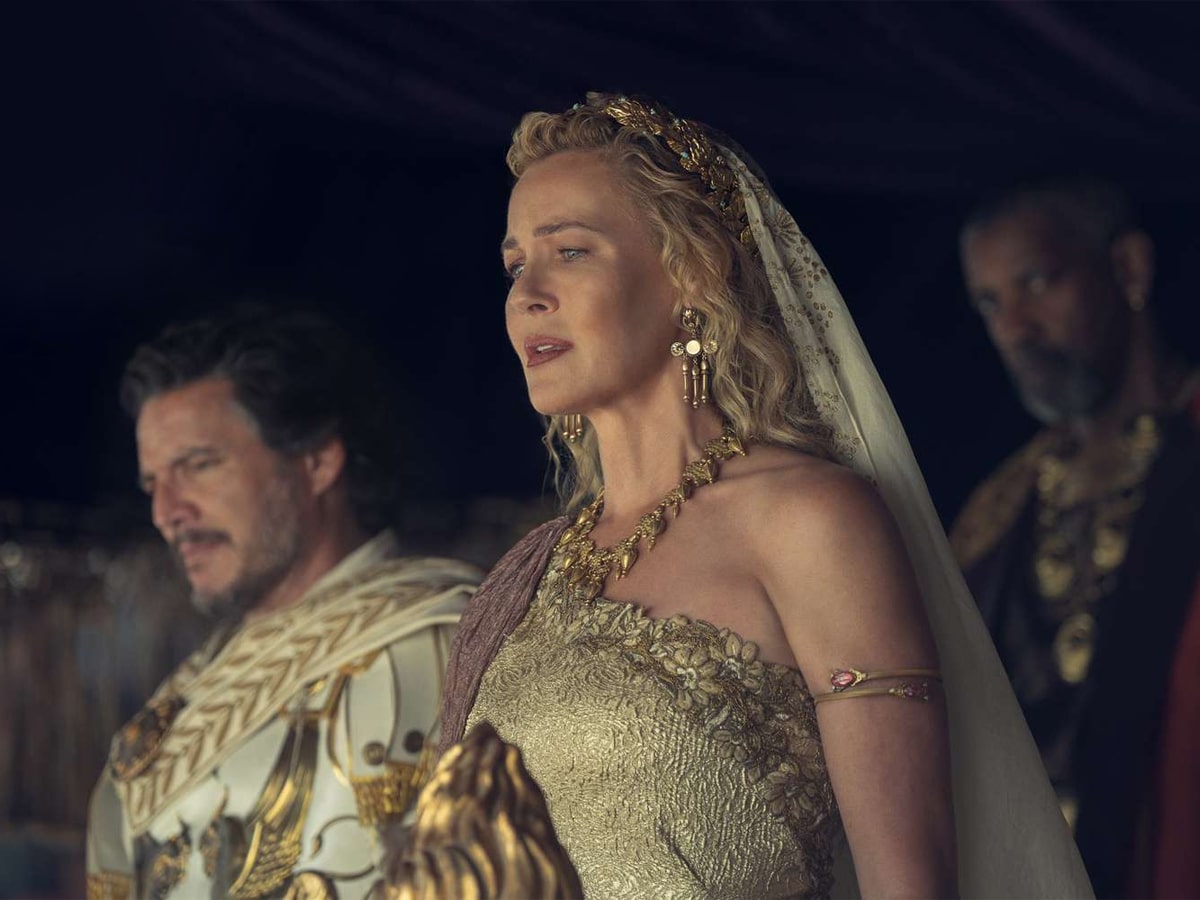
Nielsen, a Dutch-born actor whose character bridges the divide between the two films, preferred to immerse herself in the collapse of the Roman Empire to truly understand what she would be facing on a day to day basis.
Her character Lucilla was once a powerful individual in the city of Rome, being the daughter of Marcus Aurelius, but since the original Gladiator has found herself stripped of all influence, and has been reduced to a political puppet. She has no say in anything that happens in her city, and has begun plotting a military coup with her husband, military general Acacias played by Pedro Pascal.
In understanding the true depravity and injustice that occurred back in the 5th Century, Nielsen hoped to bring a level of reality to her performance as Lucilla. In preparation for her returning role, Nielsen consumed Marcus Aurelius’ writings, as well as The History and Decline of the Roman Empire by Edward Gibbon, and Rubicon by Tom Holland.
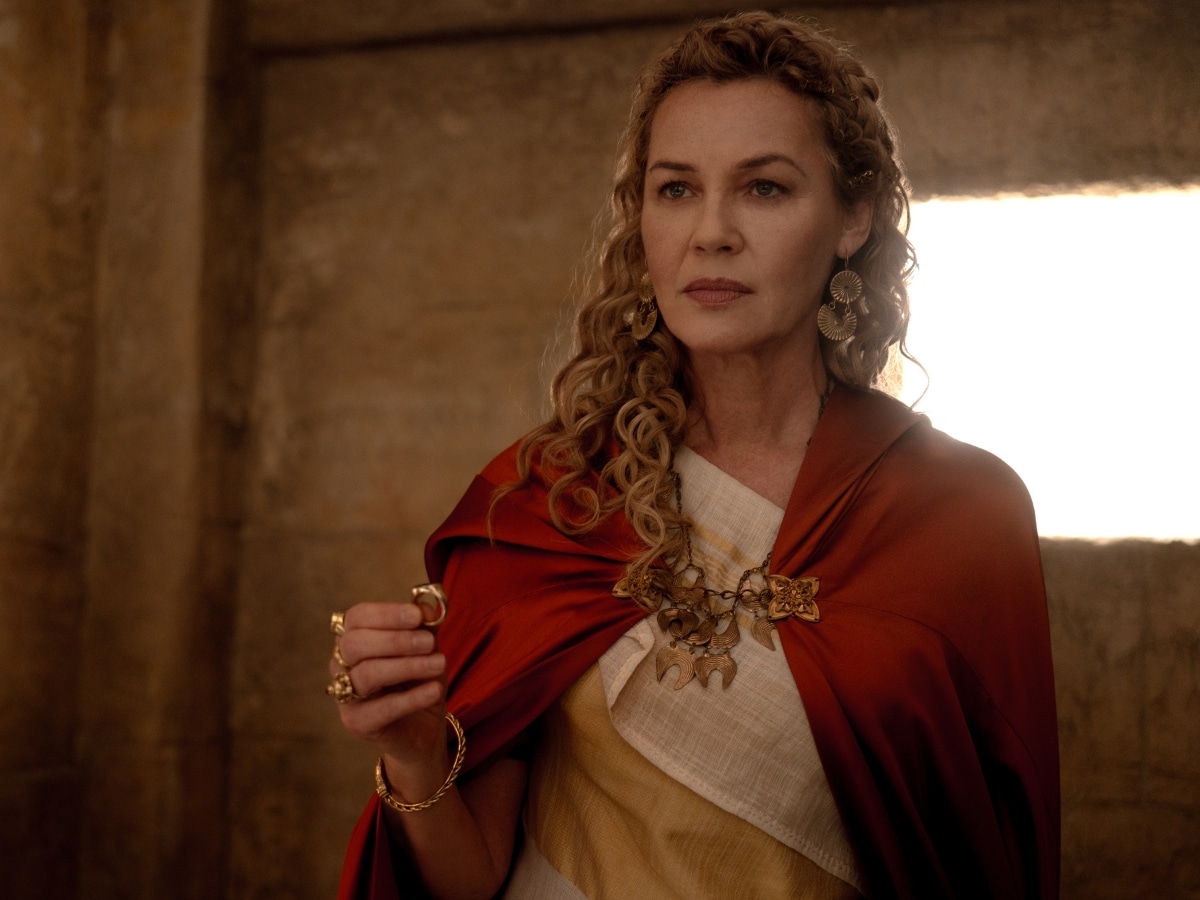
“Rubicon was very apt to use for Lucilla, as really describes the many inner tensions that are tearing at the actual inner fabric of the country: this small elite of families that are living according to very harsh judgement,” Nielsen tells me.
“Even though was a million people, it was like the centre of the universe, and you see all these hypocrisies on behalf of those that have power… there’s a feeling how even the elite are tearing themselves apart over who believes who should be considered citizens, and who should be allowed to participate in power.
“My preparation was really about both the spiritual and political observation of decline.”
Nielsen also prepared more practically, though, by visiting the British Museum and Metropolitan Museum in New York to see ancient Roman steles, which depicted the ways in which people lived, acted, and held themselves. From this, she learned how to hold herself and how the rituals of the people of Rome were enacted.
That attention to detail can be seen in the final film, as well as her performance in the original Gladiator. Through accuracy, Nielsen hoped to deliver a performance worthy of what has been described as one of the greatest human civilisations in the history of our people, as well as its messy collapse.
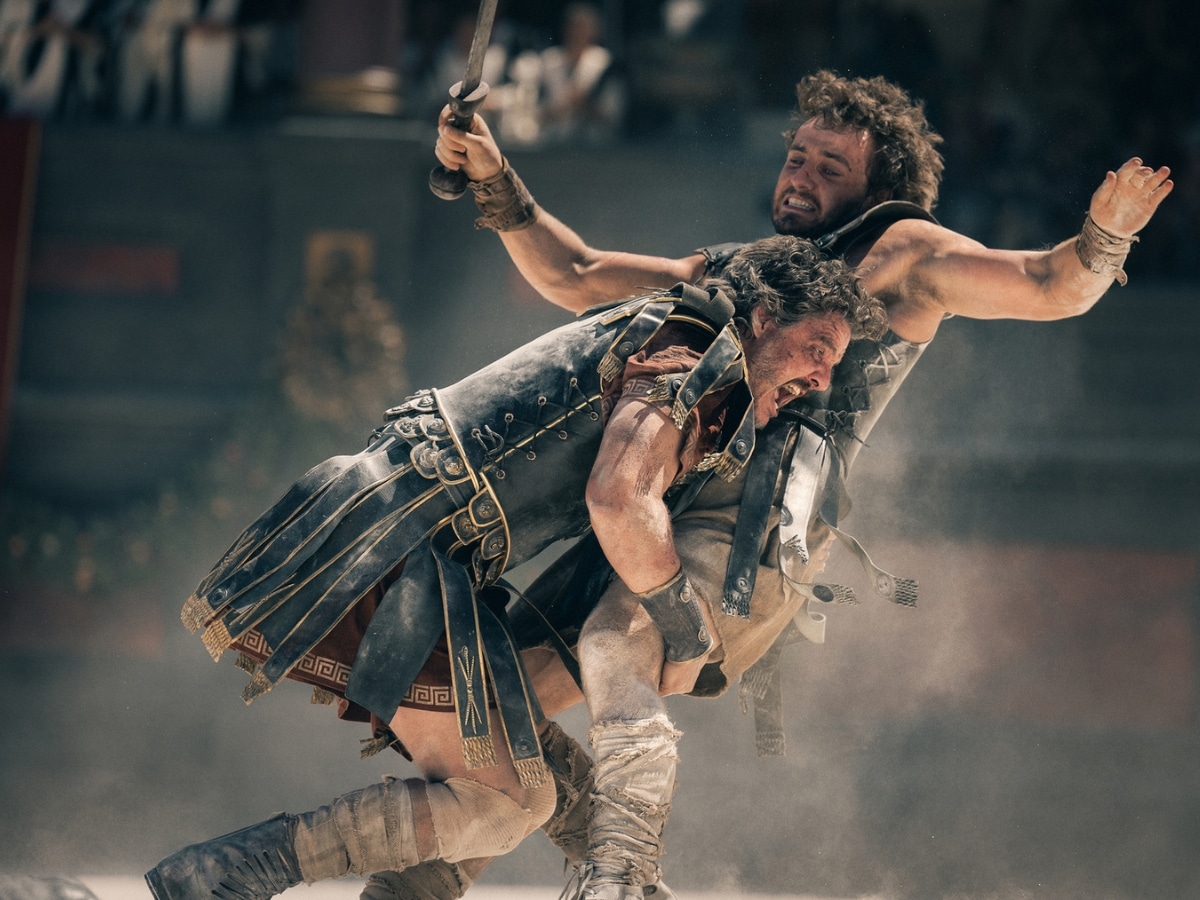
Gladiator II may take some historical liberties compared with what we know happened during the end of the Roman Empire for the sake of brevity and a more interesting cinematic experience, but the cast each brought their own knowledge, skills and work ethic to bring Ridley Scott’s follow-up to light.
Gladiator II is produced by Scott Free Productions, Red Wagon Entertainment and Parkes+MacDonald Image Nation, and distributed by Paramount Pictures. The film was released in Australia on November 14, and stars Paul Mescal, Pedro Pascal, Joseph Quinn, Fred Hechinger, Lior Raz, Derek Jacobi, Connie Nielsen, and Denzel Washington. It is a direct sequel to Gladiator (2000) and was written by David Scarpa from a story he penned alongside Peter Craig.









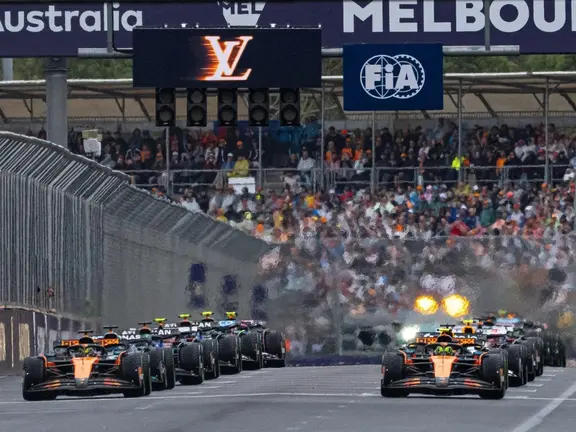

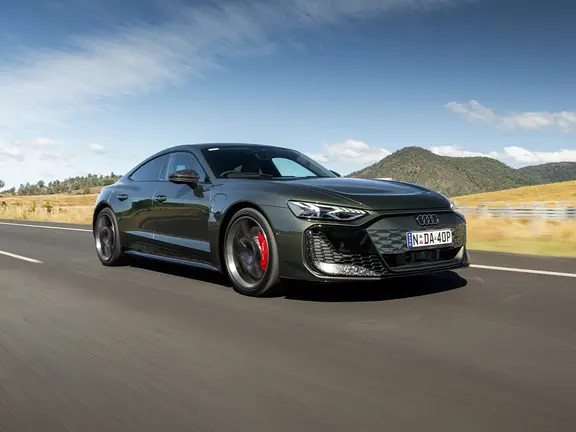
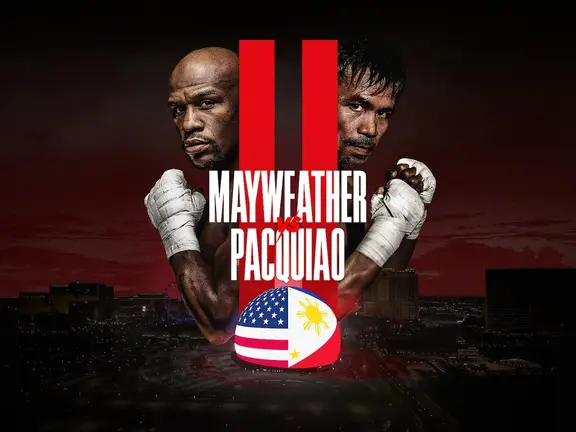


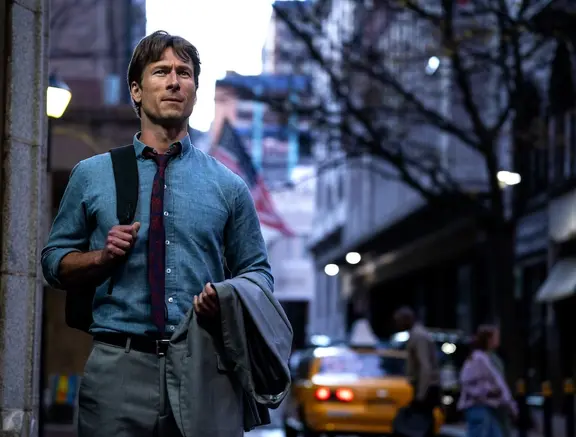


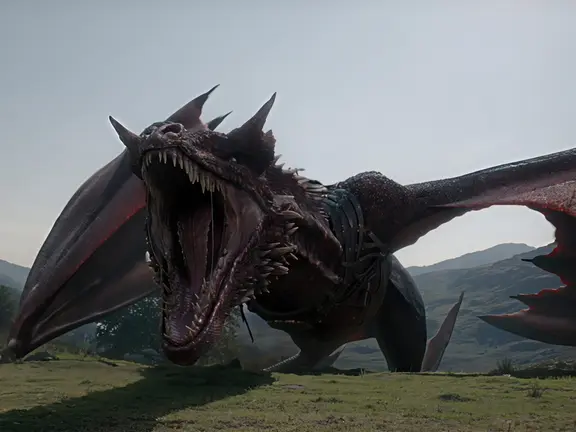











Comments
We love hearing from you. or to leave a comment.